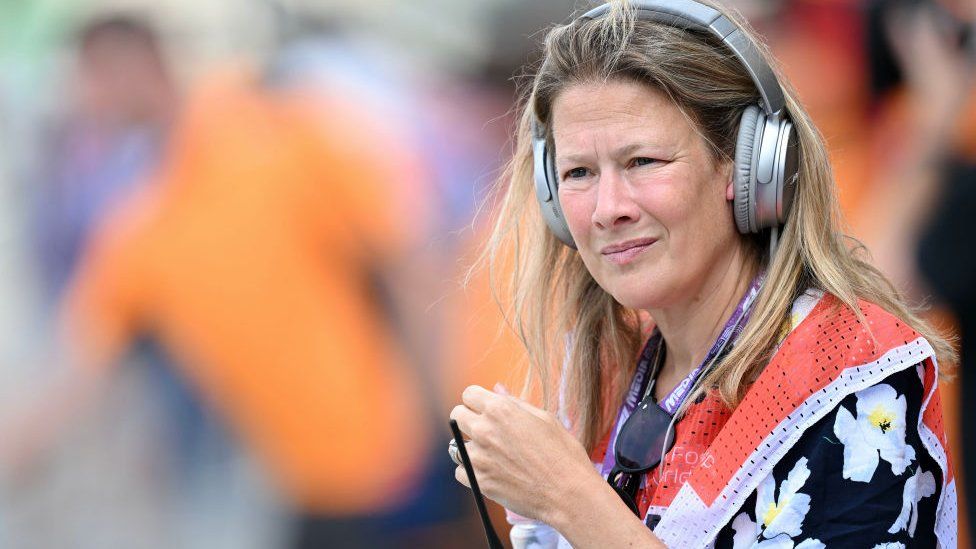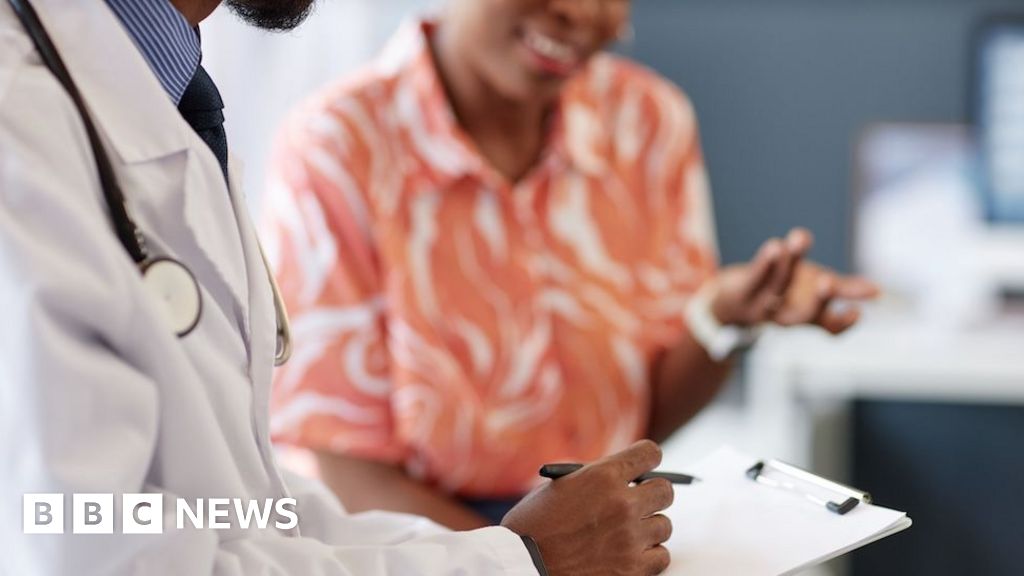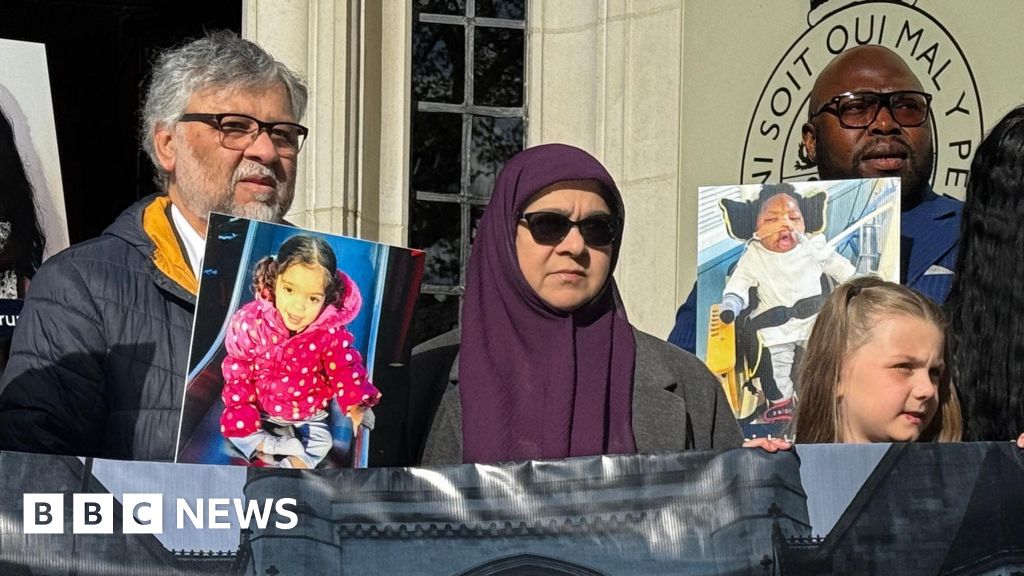ARTICLE AD BOX
 Image source, Getty Images
Image source, Getty Images
Jennie Gow has said she would like to return to her broadcasting career
BBC sports broadcaster Jennie Gow has said her recovery from a stroke was helped by a nurse who told her to "get angry" if she wanted to speak again.
The Radio Five Live F1 commentator has spent months relearning how to talk and walk after the stroke in 2022.
The 46-year-old told BBC Radio Berkshire her recovery was down to the "fortune and luck" of such a quick medical response.
She wants more support and research to help people who suffer strokes.
The Southampton-born presenter, who grew up in Wargrave, Berkshire, was found by her husband collapsed in the bathroom in December 2022 and rushed to hospital.
Image source, Getty Images
Image caption,The broadcaster has praised stroke charities following her own stroke
Doctors found she had suffered a stroke caused by a blood clot that came from the carotid artery in the neck, a tear in the blood vessel due to coughing and a viral infection that she had at the time.
The clot damaged the part of the brain associated with speech.
Nevertheless, she said the speed of the medical response had "put me in a position to make a good recovery".
Speaking to the BBC, she said: "Having that right care and the speed of that care can make such a big difference. It really is a postcode lottery
"Knowing how to get through that first phase - the quicker you can speak, the quicker the rewiring can happen. You are building new pathways.
"It's fascinating but so much more needs to be done to learn about stroke. It's not spoken about enough but it's a problem for so many families.
"I've been lucky to meet other stroke survivors who are much younger than me, having to rebuild their lives with what is known as an older person's disease - that's not accurate.
"You have to go about rebuilding your life when there isn't really the support structure there."
She said her own recovery was helped by a nurse who advised her to "get angry" if she wanted to talk again.
"Somehow I just found that anger and drive to speak," she said.
"If it hadn't have been for her, I honestly don't think I'd been speaking now."
Gow fell ill just after Christmas 2022
Gow said she would like to return to her career in F1 broadcasting, but was "frustrated" at the pace of her learning to speak again.
"I find l it really hard to look at someone talking into a microphone perfectly naturally and normally - sometimes I feel quite envious of that, because I know I can't."
Gow also paid tribute to the support she has received from the world of F1, including stars like Lewis Hamilton.
"There is always a lot of support in a crisis situation - they've been so kind, especially the heart of the motorsport industry in Oxfordshire and Berkshire.
"The heartfelt connection was there with the paddock in general. I've grown up with motorsport as part of my life - they haven't just dumped me to one side."
The broadcaster began her career at BBC Radio Solent before working for commercial radio stations in the south of England.
She has covered F1 and other motorsport events for the BBC, ITV, Netflix and Sky.
- A stroke happens when the blood supply to part of the brain is cut off, killing brain cells
- That can be due to a clot in a blood vessel, blocking the flow. Or, a vessel can burst
- There are different reasons or risk factors. People may be born with or develop weaker blood vessels. Some medical conditions such as diabetes, high blood pressure or high cholesterol, can be a factor
- Some lifestyle habits, such as smoking and eating an unhealthy diet, can contribute too
- Stroke is an emergency - rapid treatment can save lives and prevent disability. If you think someone is having a stroke, act FAST
Follow BBC South on Facebook, X, or Instagram. Send your story ideas to south.newsonline@bbc.co.uk.

 1 year ago
45
1 year ago
45








 English (US) ·
English (US) ·